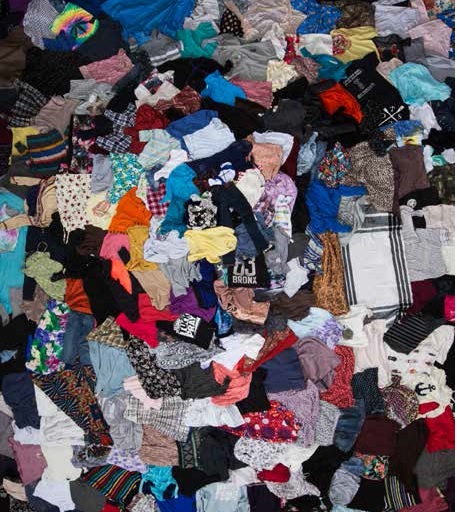As retailers face a shutdown in US and Europe, the cascading affect has caused mass cancellation of orders in Bangladesh
More than $2.6 billion worth of garment orders have been cancelled and more are being withdrawn as the dark shadow of COVID-19 creeps across the globe, shattering trade links and supply chains. Almost half of these garments are in the production process or have been completed at the world’s second largest garment exporter. Apparel factories in Bangladesh are idle since March which means they are forced to lay off and face an existential crisis.
To deal with this situation, the government has announced Tk 5,000 crore ($590 million) bailout package to pay salary and wages to the workers employed in the garment industry and has offered loan at two per cent interest. The government has also announced an additional Tk 67,750 crore financial stimulus package.
Bangladesh knitwear Manufacturers and Exporters Association (BKMEA) has revealed its members have lost more than $3 billion with all orders until July either cancelled or suspended. About 1,048 factories that are member of Bangladesh Garment Manufacturers and Exporters Association, have reported that orders for around 900 million garments have been cancelled.
Retail brands in the US and Europe source apparel from Bangladesh’s textile industry, but the pandemic has led to many of those brands shutting down their stores, forcing them to cancel orders or delay shipments. The lock down in Italy has already cost dearly to the world’s second largest exporter of garments as the European nation used to import $150 million worth of garments a month from Bangladesh.
EU is the largest destination of Bangladeshi exports as a bloc. Following the imposition of travel ban by the US the share markets in EU countries, including the UK, witnessed a slump as the US is one of the biggest markets for EU products, including automobiles, Experts and businesses mentioned.
‘If the economies of the EU and the US are affected due to the measures to prevent coronavirus it would adversely impact Bangladesh’s economy as the country’s export earnings mostly depended on the two markets,’ Abul Kasem Khan, former President of Dhaka Chamber of Commerce and Industry, said.
China and India are the main sources of raw materials for Bangladesh, and an imposition of travel ban by India would have a negative impact on Bangladesh’s production. The average trade loss is approximately Rs 200 crore per day at the Sutarkandi border checkpoint in Assam’s Karimganj district. Thousands of trucks loaded with perishable and non-perishable items as well as coal have been stranded at the check post at the Sutarkandi border.
Tonnes of essential food items, including fruits and vegetables, which are to be exported to Bangladesh, have been stuck at the border in Mahadipur in West Bengal as the nationwide lockdown has led to suspension of cross-border trade. Around 500 trucks pass through the land port every day. The trucks contain maize, onions and around 3,000 tonnes of fruits, chillies and ginger are stuck at the land port. Prasenjit Ghosh, General Secretary, Mahadipur Exporters Association has informed that around 3,500 vehicles are currently stranded near Mahadipur Land Customs Station and at different godowns since March.
Due to the cancellation of orders for non-essential goods exporters are fearing congestion at the Chittagong Port. The total storage capacity of the port is 49,018 teus. However, the number of loaded containers stranded at the port has already risen to 40,000 teus.





